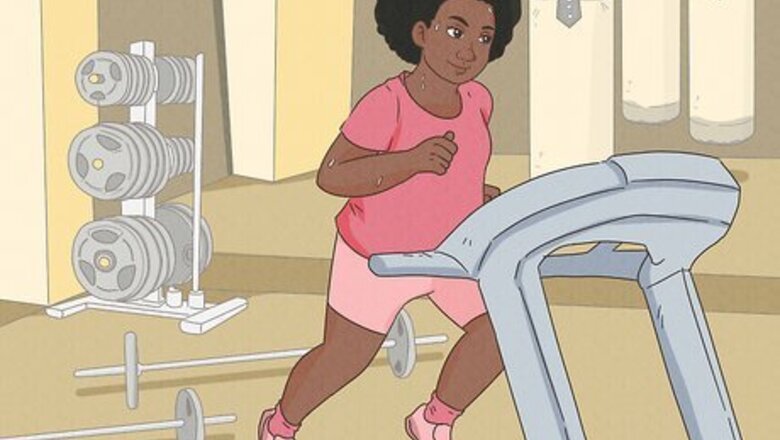
views
Workout Strategies
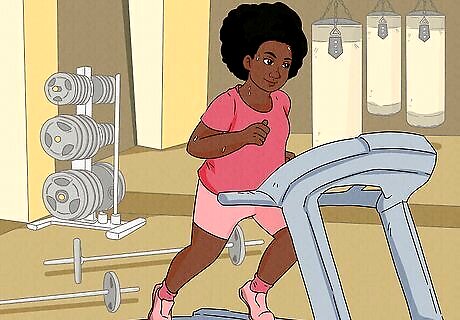
Try high-intensity interval training. If you thought cardio was a great way to burn calories, well, you'd be right. But what you'd be missing out on is that there are even better ways -- and that's interval training. The benefits of cardio (which are innumerable to start with) are amplified with this tactic. High-intensity interval training involves repeatedly exercising at a high intensity for 30 seconds to several minutes, separated by 1-5 minutes of recovery (either no or low-intensity exercise). Consider the benefits: You'll burn more calories. The more vigorously you exercise, the more calories you'll burn — even if you increase intensity for just a few minutes at a time. You'll improve your aerobic capacity. As your cardiovascular fitness improves, you'll be able to exercise longer or with more intensity. Imagine finishing your 60-minute walk in 45 minutes — or the additional calories you'll burn by keeping up the pace for the full 60 minutes. You'll keep boredom at bay. Turning up your intensity in short intervals can add variety to your exercise routine. You don't need special equipment. You can simply modify your current routine.

Pump the iron. Lifting weights isn't the fastest way to burn calories, no. But you do need both cardio and weights to reap the ultimate benefits. Your metabolism relies on it -- more muscle, higher metabolism. Higher metabolism equals more calories burned. Many women avoid weight training because they're afraid of bulking up. But a little heavy lifting is actually your number-one key to calorie burn: The more lean muscle you have on your body, the faster your metabolism, the more calories you'll burn, and the slimmer and trimmer you'll look. That's because even when your muscles are at rest, they still require three times more energy than fat for tissue maintenance and rebuilding.
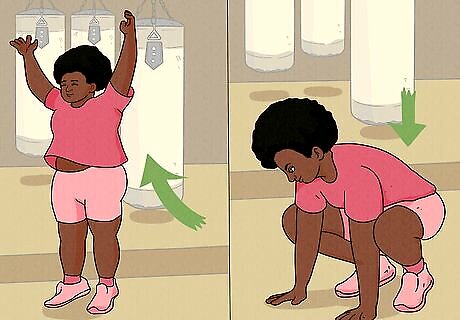
Train to burn fat. We've established that you need cardio and weight training to really amp up your calorie expenditure. But what's more, if you do it right, you'll get an afterburn effect; you can burn up to 300 calories post-workout. Seriously. A simple definition of how to do this would be to lift something heavy, sprint and repeat several times over. It works your heart and lungs but also helps tone your muscles at the same time. Mix up a run with burpees, squats, deadlifts, and sprints to burn calories even while you have your feet up on the couch. Gyms often offer classes that involve both these domains. Ask yours about the cardio/weight classes they have available. You'll get the workout and find buddies to gripe with afterward -- and you thought only Charlie Sheen was winning.
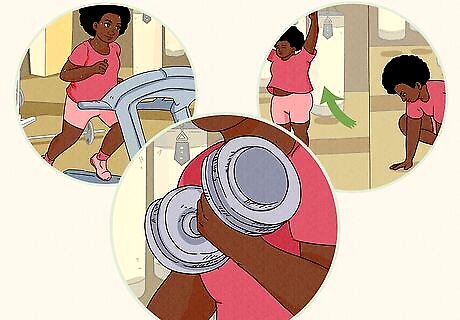
Experiment with circuit training. Burning calories is clearly about working as many muscle groups as you can at one time and circuit training does just that. But did you know that there are also psychological benefits too? It ups your mood and releases stress, in addition to increasing your cardiovascular fitness. The reason circuit training has such great effects is because it switches between muscle groups so quickly. Therefore, you're not wasting any time resting in-between stations. Your heart rate gets up and stays up, which definitely doesn't happen with weightlifting. And if you add a bit of aerobics into your circuit training session, even better.

Mix it up. Often people fall back into thinking that cardio is code for running. While running is a very efficient way to burn calories, there are others. Swimming, rowing, boxing, and dancing are all great workouts, too. A good, solid rowing workout can easily have you burning 800 to 1,000 calories in an hour's worth of work. Just 45 minutes in the pool will easily burn 800 excess calories just itching to be stored as fat. Boxing rings in at about 700 calories per hour, depending on your weight. Something simple like ballet even burns about 450 calories an hour.

Take up a new sport. If you can jog around your block blindfolded and with both arms tied behind your back, it's high time you find something else to do. Not only will this keep your mind fresh, but your body needs the challenge, too. It adapts to activities and burns fewer calories when they become old hat. To give your metabolism the ol' fake-out, go for cross-training. Don't forget about the after-burn! When your body does something it's not used to, it takes time to recover. In that recovery period, your metabolism is still up. Whatever you do, discover new muscles and keep 'em guessing.
Diet Adjustments
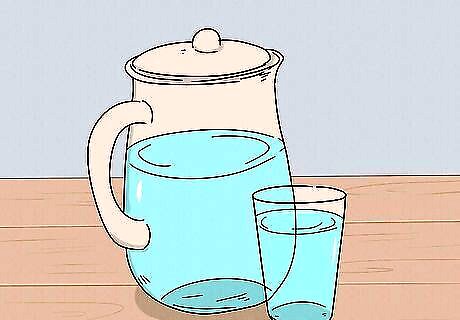
Drink lots of water. And you thought miracles didn't happen: A recent study has shown that if you drink 17 ounces of cold water, within 10 minutes your metabolism shoots up 30-40% for the next half hour or so. That means you could burn an extra 17,400 calories a year just by consuming an extra 1.5 liters (0.4 US gal) a day or so. That's five pounds! In addition to upping your metabolism, water fills you up, keeping you from eating more. Before you go about snacking, grab a glass. And, of course, always have a bottle with you at the gym.
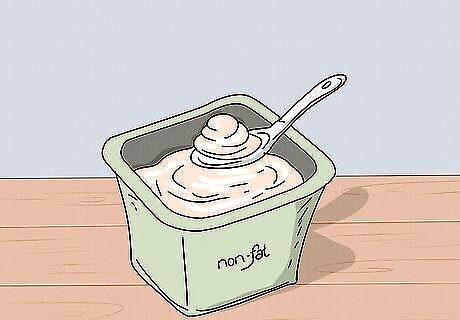
Do more (low-fat) dairy. A study published in the Journal on Obesity Research found that women who ate only low-fat dairy products -- like nonfat yogurt, for example -- at least three times a day lost 70% more fat than their female counterparts who just ate low amounts of dairy. In short, dairy doers have less fat on their bodies, not the other way around. In fact, calcium tells your body to amp up the fat burning. Unfortunately, calcium-fortified goods don't fall under the same umbrella -- to feel the calcium power, you have to go for the dairy products in the raw. Try to get at least 1,200 mg a day.
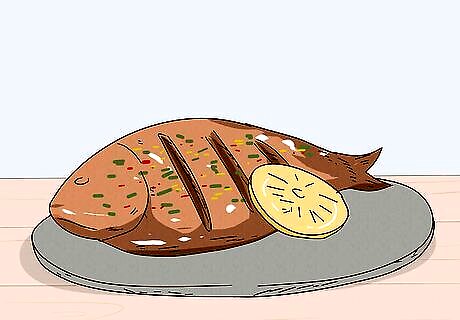
Get fishy. With your diet, at least. Turns out those who eat fish on the regular have lower leptin levels -- this blessing keeps up the metabolism, preventing obesity. Try to get a serving of fish every other day; salmon, tuna, and mackerel, your fattier fish, are best. Replace foods that expand your waistline with healthy foods, like fish. Fish is a food that is full of satisfying flavor, low in calories, and stocked with heart-healthy omega-3 fatty acids. Omega-3 acids are essential fats that your body can't make. They help keep the blood from clotting too easily and add to a better cholesterol ratio.

Fill up on fiber. Low-carb, high-fiber foods take more time to digest than other foods, leaving you feeling fuller longer and less likely to snack needlessly. Spinach, broccoli, asparagus, and cauliflower are all healthy, high-fiber foods. Beyond the fiber content, crunching and chewing a whole piece of fruit stimulates your senses and takes longer to eat. So psychologically, it may also be more satisfying than beverages or soft foods. Chewing also promotes saliva and the production of stomach juices that help fill the stomach.
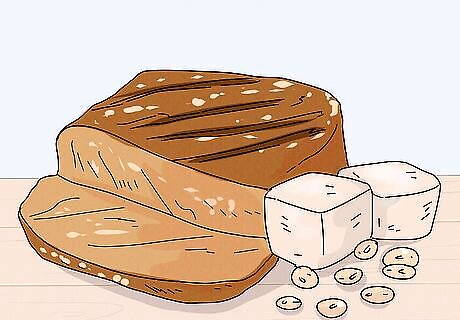
Pump up the protein. Not in an extreme, Atkins sort of way, but having a little protein at every meal fires up your metabolism. Your digestive system uses more energy to break it down, so you burn more calories. However, keep protein levels to between 20 and 35 percent of your diet; eating too much of it can cause kidney strain and may cause your body to store too much fat. Not all protein is created equal. Be sure to look for protein sources that are nutrient-rich and lower in fat and calories, such as lean meats, beans, soy, and low-fat dairy.
Lifestyle Changes

Destress. Stress may contribute to abdominal fat, according to several studies, including a recent one at the University of California, San Francisco. When you're stressed, hormones like cortisol stimulate your appetite, slow your metabolism down and encourage fat storage inside your abdomen. So what can you do about this? Find an activity that reduces stress for you, whether it's listening to soothing music or taking yoga, and do it daily. Not only will you relax, but you'll lessen your likelihood to stress eat.
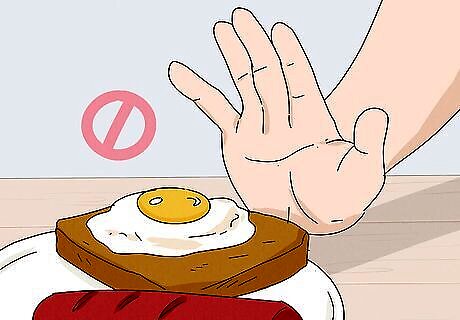
Don't blow off breakfast. Studies show that eating breakfast plays a part in successful weight loss — almost 80 percent of people who successfully keep weight off chow down on this meal, according to a study published in Obesity Research. Your metabolism slows as you sleep, and the process of digesting food revs it up again. Aim for a 300- to 400-calorie breakfast, such as egg whites, high-fiber cereal (another metabolism booster) with skim milk or oatmeal and fruit.
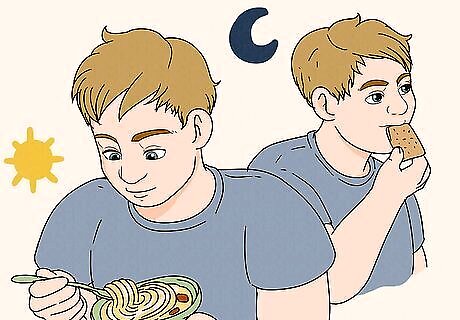
Eat lightly and often. For most people, the body uses up more energy digesting smaller meals every few hours than by eating the same number of calories in two or three sittings. So snack away during the day.
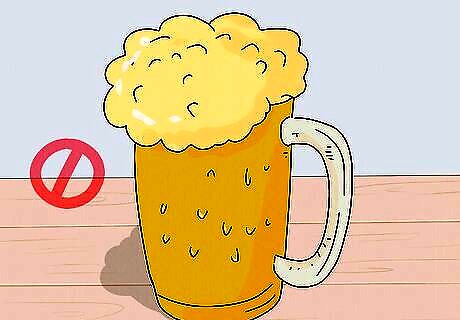
Avoid alcohol. It may be hard to fathom, but alcohol actually depresses your central nervous system, ultimately slowing your metabolism. Now you have another reason to chug the H2O. A study in the UK found that if you consume a high-calorie meal, less of that will be burned off (and more will be stored) if you consumed it alongside alcohol. Alright, that's not entirely true. If you can keep your alcohol intake to one glass of red wine a day, you'll actually be less likely to become obese. That's one 4-oz glass of wine -- not one jug.
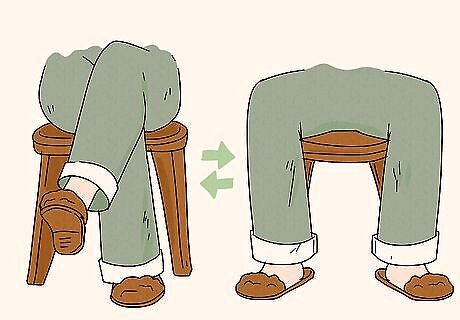
Fidget. People who are constantly in motion — crossing and uncrossing their legs, stretching and pacing — burn more calories. Overweight people have a tendency to sit, while lean ones have trouble holding still and spend two hours more a day on their feet, pacing around and fidgeting, research says. The difference translates into about 350 calories a day, enough to produce a weight loss of 30 to 40 pounds in one year without trips to the gym.

Get enough shut-eye. Yeah, Gosling may be on Letterman, but it's way more important for your waistline to head to bed. A study at the University of Chicago Medical Center found that people who got only four hours of sleep had much more difficulty processing carbs. The culprit? Increased levels of insulin and the stress hormone cortisol. When you're exhausted, your body lacks the energy to do its normal day-to-day functions, which includes burning calories efficiently. So the best way to make sure your metabolism runs smoothly is to get six to eight hours of Zs each night.
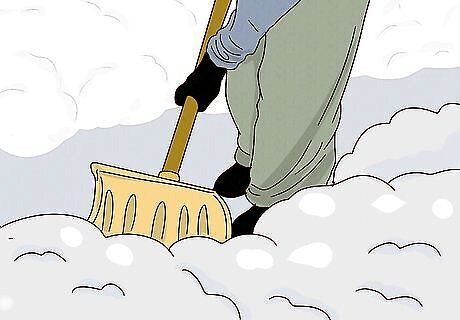
Become active in any way that you can. Don't think of burning calories as something reserved for the gym. You can burn those bad boys anytime, anywhere. The following activities burn 150 calories for a 150-lb person: Golf and carry your own clubs for 24 minutes Shovel snow by hand for 22 minutes Spade your garden for 26 minutes Push a power lawnmower for 30 minutes Painting the house for 27 minutes Play ping pong or chase your kids around the playground for 33 minutes



















Comments
0 comment